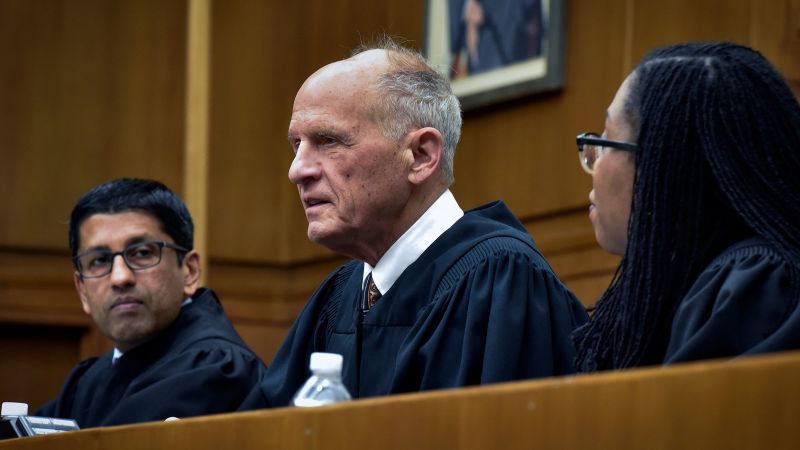In his memoir, retired US Appeals Court Judge David Tatel criticizes the current Supreme Court, particularly Chief Justice John Roberts, for their actions on civil rights issues. Tatel is a former civil rights lawyer with nearly 30 years of experience on the federal appeals court. He is candid in his assessment of the Supreme Court kicking precedent to the curb and becoming a tragedy for civil rights. Tatel reveals insights from private conversations with the late Justice Ruth Bader Ginsburg, including her pressure to resign while a Democrat was still president, which she resisted due to her belief in the American people.
Ginsburg’s death in 2020 led to Trump’s third appointment, Amy Coney Barrett, which ultimately led to the 2022 decision overturning the constitutional right to abortion. Tatel believes that this decision would not have happened if Ginsburg had lived or if she had retired during Obama’s presidency. The book, titled “Vision: A Memoir of Blindness and Justice,” covers Tatel’s legal career and journey towards acceptance of his blindness. He expresses concerns about the Supreme Court’s disregard for judicial restraint principles and its potential impact on democracy.
Tatel’s legal ideology is rooted in America’s civil rights era, and he has served in various roles advocating for civil rights. He is critical of Chief Justice Roberts’ views on race and remedial measures, particularly his rejection of school integration plans and curtailment of the Voting Rights Act. Tatel recounts his frustrations with the Supreme Court’s decisions and actions, especially in cases related to voting rights and racial discrimination. He highlights the importance of the judiciary’s role in upholding civil rights and ensuring equality for all Americans.
In his book, Tatel discusses conversations with Ginsburg about the Supreme Court’s handling of key civil rights cases, such as Northwest Austin v. Holder in 2009 and Shelby County v. Holder in 2013. He details the behind-the-scenes dealings and compromises among the justices that ultimately led to the VRA’s destruction. Tatel believes that the liberal justices paid a high price for their compromise, as it paved the way for the erosion of civil rights protections. Ginsburg often reached out to Tatel regarding his DC Circuit cases that came before the Supreme Court, showing her support and dedication to upholding justice.
Tatel’s decision to retire in 2021 after President Joe Biden took office reflects his frustration with the Supreme Court’s lack of respect for the principles of judicial restraint. He felt weary of having his work reviewed by a court that seemed to disregard the rule of law and the values he had dedicated his life to upholding. Tatel’s memoir paints a picture of a legal career dedicated to civil rights and justice, while also expressing concerns about the future of the judiciary and democracy in the United States. His frankness and independence in writing reflect a deep commitment to upholding the principles of justice and equality for all.


